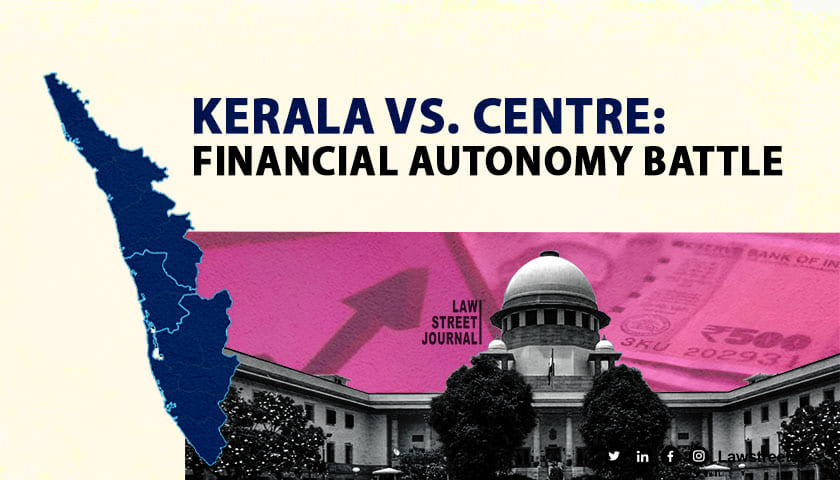NEW DELHI: The Supreme Court on Friday issued notice to the Centre on a plea by the Kerala government, claiming interference with its power to borrow and regulate its own finances, which caused huge arrears by affecting welfare schemes for the poor and the vulnerable, others.
A bench Justices Surya Kant and K V Vishwanathan sought a response from the Union government and fixed the matter for hearing on January 25.
In an original suit filed under Article 131 of the Constitution, the state government through its chief secretary alleged that the Union government has "taken control over its budgeting process" through executive actions.
The suit alleged that imposition of the borrowing ceiling put by the Union government has led to an accumulation of unpaid dues over the years and it could trigger a grave financial crisis.
The state government contended that imposition of a Net Borrowing Ceiling as deemed by the Union government limits borrowings from all sources including the open market and thus curtails the exclusive constitutional powers of the state.
The suit claimed that as on October 31, 2023, a sum of Rs 26,226 crores is imminently and urgently required in order for the plaintiff state to avert the impending grave financial crisis that has been caused by the impugned orders.
The suit said that the ability to determine the borrowing of the State in order to balance the budget and make up the fiscal deficit is exclusively within the domain of the states.
The state government has challenged the directions issued by the Ministry of Finance in the letters written in March and August this year. The state government has also challenged the amendments to Section 4 of the Fiscal Responsibility and Budget Management Act, 2003 through the Finance Act, 2018.
"The suit deals with the executive power conferred on the plaintiff State under Article 293 of the Constitution of India to borrow on the security or guarantee of the Consolidated Fund of the State in alignment with the fiscal autonomy of the plaintiff State as guaranteed and enshrined in the Constitution," it contended.
The suit said that the defendant does not have the constitutional right or authority to issue directives to the state government under Article 293 of the Constitution which have the potential to damage the federal structure by transgressing upon the exclusive financial domains of the state.
The state government said it has suffered a cumulative expenditure loss or resource deficiency of Rs 1,07,513.09 crores over fiscal year 2016-2023 due to such actions of the central government and as a consequence, the state was not able to fulfil the commitment made in its annual budgets.
"The ability to determine the borrowing of the State in order to balance the budget and make up the Fiscal Deficit is exclusively within the domain of the States. If the State is not able to borrow to the extent required based on the budget of the State, the State would not be able to complete its State Plans for the particular financial year. Therefore, it is essential for the progress, prosperity and development of the State and the people of the State that the State is able to exercise its constitutional rights and its borrowings are not impeded in any manner," it said.
The State Government also contended the State is not able to fulfil the commitments in its Annual Budgets.
"This has resulted in huge arrears that the plaintiff State owes by way of welfare schemes to the people of the State particularly the poor and the vulnerable, various beneficiary groups, the employees of the State Government, its pensioners and dues to its State-Owned Enterprises," it said.
The Kerala government also claimed the State has the exclusive power to regulate its finance through preparation and management of its Budget and Borrowings and the actions of the Defendant Union fall foul of, and violate the federal structure of the Constitution.
The amendment to the Fiscal Responsibility and Budget Management Act, 2003 (Act 39 of 2003) vide the amendment no. 13 of 2018, are "manifestly arbitrary, unreasonable, irrational, and violative of fundamental right of the plaintiff State under Article 14 as well as of Articles 73, 162, 199, 202, 246, 266, 281, 298 and 293 of the Constitution", it said.














